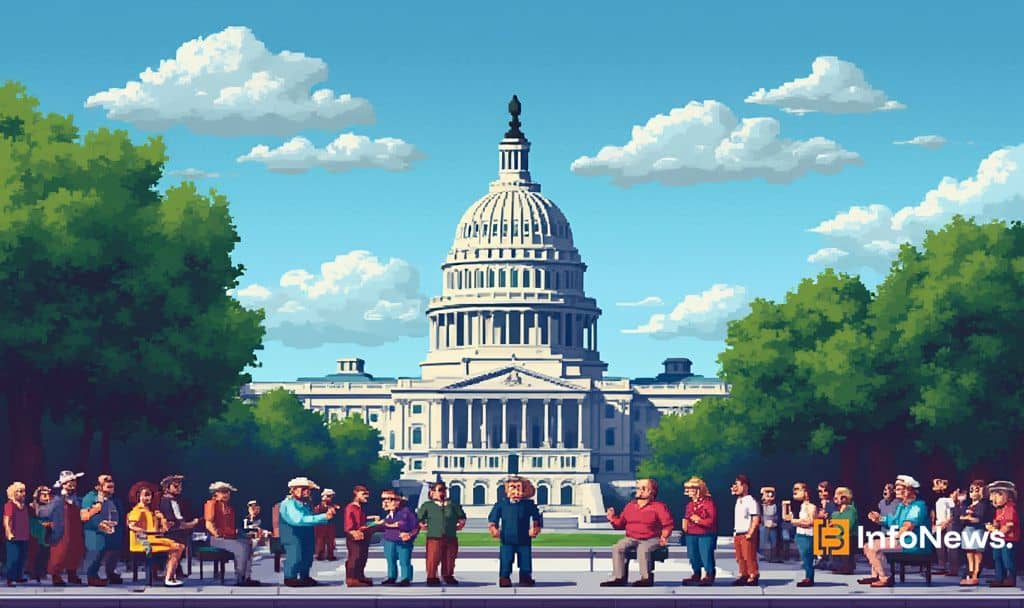US House Moves to Quickly Ban CBDCs in New Bill
- The US House is advancing a ban on CBDCs.
- Led by Tom Emmer, aiming at privacy issues.
- Bill part of broader digital market structure efforts.

The US House is swiftly moving to potentially ban central bank digital currencies by integrating it into a broader market structure bill, with key figures leading the charge.
This move underscores the significant regulatory shifts impacting cryptocurrency markets, potentially favoring decentralized networks like Bitcoin and Ethereum while intensifying debates on privacy and technology advancement.
US House Moves to Quickly Ban CBDCs in New Bill
Summarizing ongoing legislative activities, the US House is rapidly advancing a ban on central bank digital currencies (CBDCs), incorporating it into a broader market structure bill as of September 17, 2025.
The integration of the Anti-CBDC Surveillance State Act into the Digital Asset Market Clarity Act could reinforce reliance on public blockchain networks and avert potential state surveillance issues.
US House Embeds CBDC Ban in Market Structure Bill
The US House of Representatives is embedding a CBDC ban in a market structure bill led by Congressman Tom Emmer. Lawmakers, including Senator Cynthia Lummis, push to include the ban amid privacy concerns.
Tom Emmer, House Majority Whip (R-MN), “A CBDC would lead to state surveillance of personal spending.”
Tom Emmer opposes a US CBDC due to privacy implications, aiming to prevent state control over individual spending. The House Rules Committee supports the integration of the bill.
Cryptocurrency Preference Over CBDC Indicates Market Shift
Immediate effects suggest increased support for existing cryptocurrencies like Bitcoin and Ethereum due to preference for open networks. The US aims to avoid surveillance risks tied to CBDCs.
Financial implications center on a clear regulatory environment fostering private stablecoins over government-controlled digital currencies. Concerns about the US lagging in digital innovation persist.
Historical Resistance to CBDCs Gains Momentum
Past attempts to ban CBDCs, such as the GENIUS Act, failed but are now gaining momentum via market structure reforms. Historical efforts highlight the persistent opposition to governmental digital currencies.
Future outcomes may see a shift towards decentralized networks with market stability. This echoes historical trends of favoring privacy and innovation over state control in digital asset development.
| Disclaimer: The information on this website is for informational purposes only and does not constitute financial or investment advice. Cryptocurrency markets are volatile, and investing involves risk. Always do your own research and consult a financial advisor. |




